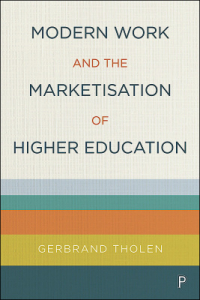In March of this year, then Education Secretary Nadhim Zahawi proposed a crackdown on ‘Mickey Mouse‘ degrees. Universities would be asked to provide information on drop-out rates and low graduate job outcomes in physical and online adverts for their courses. Courses whose graduates have shown relatively low labour market prospects are deemed ‘poor quality’, and there would be caps on the number of students on these courses.
A spokeswoman for the Department for Education said: “Higher education is an investment and we need to ensure that graduates are being rewarded for the money, time and effort they put into their studies with an educational experience and jobs that match their skills and help contribute to the economy.”
Higher Education (HE) is now increasingly a market, and its courses are seen as economic investments. Universities and other HE institutions have shown greater reliance on the use of markets in their management and functioning in recent decades. Specifically in England, the rise of tuition fees to over £9,000 a year and the near elimination of direct government funding for university teaching have transformed the HE landscape. Students are now consumers and are expected to choose between the educational options on offer, based on perceived value for them (including price, quality and availability). They will experience HE as a consumption good or an investment product, rather than human development, and HE institutions act as market providers of educational programmes as opposed to independent institutions of higher learning.
Researchers have observed various forms of marketisation in UK HE since the 1980s and have outlined in detail how the market and competition have taken hold. Some have attempted to explain why the UK system has been exposed to so much more marketisation than other countries. There are two dominant explanations for this: The first is that, over time, governments have realised that the burden for taxpayers would be too high to support the HE system financially. The cost of tertiary education has been increasingly shifted to the users (students), and as a result, a quasi-market in HE has developed. This state then regulates the market to ensure that students are getting value for money and that market competition leads to better outcomes. In this explanation, marketisation is a natural development in the context of mass HE.
A second explanation is that the ongoing marketisation of HE is part of a wider trend of neoliberal reform. The neoliberal drive for market, competition and choice since the 1980s has shaped HE, just as it has shaped the public sector. Proponents argue that the political motives for more marketisation are part of a hegemonic project to reinvent free-market capitalism, assisted by state governments who aim to inject neoliberal governance in all areas of life, including education.
In reality, there are likely to be a range of factors that have made the HE system increasingly marketised within the UK and in England in particular. After studying the government policies that brought in marketisation, I felt that there was another explanation: that the drive for marketisation was supported by a set of beliefs about the work that graduates perform, the skills they use and the wages they earn.
The desire to create a more educated workforce helped improve HE access and increase participation, but in the English context, once the HE sector had been framed as the key facilitator of economic success and individual labour market investment opportunity, it also led to marketisation. Looking at the marketisation of HE in this way highlights the role of HE for so-called individual human capital investment and actively builds on ideas on the nature of Western economic development, globalisation and the importance of high-skilled work within the economy.
As a result, students over time were expected to pay for their own education and to act and make decisions upon labour market signals, with their market interests seen as aligned with the interests of both employers and the state. Market choice and competition would improve and enhance the role HE could play within the economy.
The education policy overestimates how important HE is in directing modern work and the graduate labour market. The idea that investment in education will give all graduates privileged opportunities to become high-waged, high-skilled knowledge workers is not supported by the empirical evidence on occupational change, earnings, skill use and work conditions.
The implications are that the marketisation of higher education is too often believed an economic necessity and tied in with other orthodoxies about the role of education in the economy. A more honest discussion is needed about the role of competition and markets to organise UK Higher Education.
Gerbrand Tholen is Senior Lecturer in Sociology at City, University of London.
 Modern Work and the Marketisation of Higher Education by Gerbrand Tholen is available on the Bristol University Press website. Order here for £29.99.
Modern Work and the Marketisation of Higher Education by Gerbrand Tholen is available on the Bristol University Press website. Order here for £29.99.
Bristol University Press/Policy Press newsletter subscribers receive a 25% discount – sign up here.
Follow Transforming Society so we can let you know when new articles publish.
The views and opinions expressed on this blog site are solely those of the original blog post authors and other contributors. These views and opinions do not necessarily represent those of the Policy Press and/or any/all contributors to this site.
Image Rattankun Thongbun via iStock.


